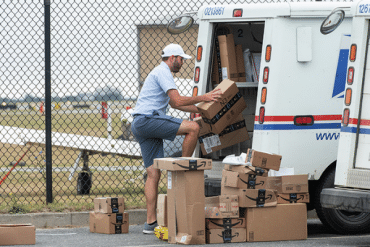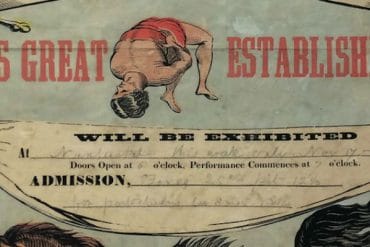Massachusetts Representative Joe Kennedy III shares his thoughts on the country, his family, and the question everybody keeps asking him.
Joseph P. Kennedy III is the son of former Congressman Joe Kennedy and grandson to the late Robert Kennedy. Grounded, approachable, yet measured, Kennedy lacks the airs one might expect from the product of arguably America’s most famous political dynasty. Despite his uncanny physical resemblance to his forbearers, Kennedy appears to be his own man, charting his own course. Time will tell where his future will lead, but he is clearly one of the brightest lights in the Democratic party and a person to watch. N Magazine sat down with Kennedy who shared with us his thoughts on Washington, his family and the future of the country.
 N MAGAZINE: You’re a Hyannis Port guy, but would you ever consider trading-up to Nantucket? Kidding aside, what’s your relationship with the island?
N MAGAZINE: You’re a Hyannis Port guy, but would you ever consider trading-up to Nantucket? Kidding aside, what’s your relationship with the island?
KENNEDY: [Laughs] We’ve been coming to Nantucket ever since I was a little kid. Once a year, we’d go off fishing off Sankaty for blues and for striped bass with different fishermen from the island. Every now and again, we’d make day trips over and get sandwiches from Provisions. My family’s roots in Hyannis Port will stay strong, but it’s really nice to be able to escape to the island. It’s a pretty special place.
N MAGAZINE: Were you always interested in going into politics?
KENNEDY: I grew up around politics. It was something that I was obviously familiar with from a very young age with my dad being in Congress. I was interested in it, but it’s certainly not something that I thought I’d be doing when I was in my early thirties when I had come out of the Peace Corps of all places.
 N MAGAZINE: Given where you’re from and with your family history, one would assume you are liberal, but you also seem very pragmatic. Would you define yourself as a pure liberal or a hybrid?
N MAGAZINE: Given where you’re from and with your family history, one would assume you are liberal, but you also seem very pragmatic. Would you define yourself as a pure liberal or a hybrid?
KENNEDY: I would define myself as a pragmatic progressive. Particularly at these times in Congress, I don’t hide the fact that I obviously have pretty progressive views, whether that’s on health care, on immigration, on the economy. And I think those views and policies actually have made our country become a stronger, more inclusive, fair and better place. I also recognize that some of my closest friends in Congress are Republicans. If I want to get a bill out of Congress, I need Republicans not just to sign onto it, but to champion it. Across the spectrum, from the conservative right to the progressive left to the folks in the middle, our responsibility is to stand for the values for which we believe, but also to build consensus. We’re supposed to disagree. That’s democracy. It’s a messy process. But we’re also supposed to find a way to make that process work.
N MAGAZINE: Is there anything that’s actually fun about being in Congress?
KENNEDY: The job is an honor. There’s times that are certainly enjoyable. But if you wanted to go have a whole lot of fun, being a member of Congress in Washington these days is probably not the place I would recommend. The job is hard. The environment is demanding, and it should be. There are serious issues that come across our desks, like trying to understand the risks of a military intervention in Syria or how to address the concerns that we’re seeing in Iraq and Afghanistan. How you solve some economic challenges with the latest crisis coming out of the latest Trump tweet. I don’t find necessarily a whole lot of fun in that. Given the challenges we’re up against in the environment that we’re in, if you’re not taking it all that seriously, you’re missing the point.
N MAGAZINE: The atmosphere in Washington is unlike anything we’ve ever seen. Can you synthesize what life is like right now under the Trump regime?
KENNEDY: On the one hand, the daily routine is still the daily routine. On the other hand, it’s undeniably far more chaotic. The reality now is different. In the morning, people take their cell phones and find out what the president happened to tweet for the day. Oftentimes, those tweets set the daily narrative and the news agenda. Even in the best of times, government is a slow, grind-it-out process. It was not designed to move quickly. It was supposed to be deliberative. For the most powerful nation in the world, you weren’t supposed to change policy on a whim. You were supposed to sit there and push hard to try to get major policy enacted. It becomes next to impossible for a legislative body to try to keep its eye on the ball of long-term goals when you just get sucked into the vortex of the latest chaos coming out of the White House.
N MAGAZINE: Is there anything the president is doing or that he is done that is positive?
KENNEDY: There are undeniably things that are positive. I think the question that I still have with that is at what cost, and does this link to a larger strategy? You’ve got Kim Jong-un, the dictator of North Korea, that has indicated he’s willing to discuss denuclearization. That is undeniably a positive. The question is going to be: At what cost? What’s the ramifications of the removal of United States security forces from the Korean Peninsula and potentially their move of the US nuclear umbrella from at the very least South Korea? That’s not a cost that I think United States can accept. Could it result in a consequence that has dramatic ramifications for peace and prosperity in the region and around the world? Yes. And if it does, the president and the international community will deserve an awful lot of credit for it.
 N MAGAZINE: Part of how President Trump got elected was his ability to sway a working-class voter base who had voted Democrat in the past. How do you reclaim the faith of that voting base moving forward?
N MAGAZINE: Part of how President Trump got elected was his ability to sway a working-class voter base who had voted Democrat in the past. How do you reclaim the faith of that voting base moving forward?
KENNEDY: The biggest issue comes down to credibility, right? There’s no short-cuts here. Democrats have to understand their constituents and say, “I understand the economic realities and the challenges that we face as a community, as a region, as a country. I can give voice to those in our state capitals and in Washington DC.” The constituents need to believe that when those elected officials go to Washington, those concerns are going to be heard and that they’re not going bargained away. They’re going to have a seat at the table.
N MAGAZINE: You’ve been very deliberate about your career and have been paying your dues. Then all of a sudden you were thrust in the national limelight by getting tapped to give the response to the State of the Union address this year. Explain that experience.
KENNEDY: All of that came as a surprise to me. I immediately said yes but also immediately swallowed a bit hard because I recognized that it is a difficult speech to give. The speech is a difficult forum. You’re never going to match the environment of the House Chamber with the House, the Senate, the Supreme Court, the diplomatic corps and all that. Rather than give a speech from an office in Washington, we were able to do it at a regional vocational school in Massachusetts. It’s been surprising to see the speech seems to have resonated, after you can get over my overly zealous Chapstick application. [Laughs] In my defense, it was winter, and it was cold, but no one seems to care.
 N MAGAZINE: The big question within the Democratic Party is who’s going to take up the torch for this next presidential election. Are there conversations happening behind closed doors about this?
N MAGAZINE: The big question within the Democratic Party is who’s going to take up the torch for this next presidential election. Are there conversations happening behind closed doors about this?
KENNEDY: No, and there shouldn’t be. The worst mistake I think Democrats could do at the moment is have some perceived set of a king or queen-makers — of which there are none — and say these are going to be the five people who we want for whatever position. If you believe that the greatest challenge you’ve got is credibil ity, then the way you get that is you earn it, right? That’s not something that any set of policy makers can bestow. That’s something that somebody’s going to have to go out there, rolling up their sleeves and proving that they can understand the communities they seek to represent and actually bring the country together. I don’t share the same anxiety at this point that there’s no clear front runner for the Democratic nomination. There shouldn’t be. This is something that’s going take place over the course of the next nearly three years. We’ve got a long way to go, but there’s time. Candidates out there need some time to prove that they can do it. If there’s nobody two-and-a-half years from now, then, yeah, I’ll be worried.
N MAGAZINE: You’ve said that you are not interested in the presidency, but have you felt pressured in that direction?
KENNEDY: No. I mean, not really. I’m so honored that people would even throw my name out there for consideration. But it’s not on my horizon, not on my agenda, not in my plan.
N MAGAZINE: Are you tired of being asked that question?
KENNEDY: It’s not tiring. I’m honored that people think there’s opportunities out there for me. I’m in this bizarre job that the moment you have it everybody wants to know when you’re trying to find another one. More than anything else, I just don’t feel that pressure and that rush. I’ve got an incredible and really young family. I spend a lot of time away from them as it is. The job itself is demanding already, so I don’t feel the need to find something else to do at the moment. If other opportunities come up, I will evaluate them as they do and try to see if it’s the right fit for my family and me at that moment. But I’m not in a rush.
N MAGAZINE: Your family history has been the subject of so many films and books. What role does that public fascination play in your daily life and in your political life?
KENNEDY: There’s been a lot written and said about my family. A lot of specials, a lot of movies. I essentially don’t watch any of them. I don’t read any of them. I keep that away. Because without question, as balanced as the writers or producers might be, undoubtedly they’re going to focus on the historical aspect of some of my family members. They don’t focus on the parts that matter most to me. They focus on the Kennedy part and not on the family part. What were they like as a mom and a dad, as a brother and a sister, as a husband, a daughter? That matters most to me — the family part.
Yes, I’m very proud of the contribution my family has made. Yes, I hold dear that they were able to make a contribution to the country in the course of our history. But none of those television specials ever focus on who they are as people. We’re a family like everyone else. And like every other family out there, we’ve had our successes, and we’ve had our challenges. For us, the successes and the challenges end up becoming more well known, but it doesn’t take away from the fact that we are a family — and that’s the part I focus on.







